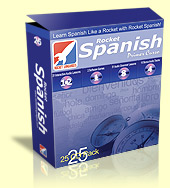|
|
Home Immigrant Stories Culture Message Board Marketplace Forums Blogs |

secondary
education

technical schools

universities/colleges

Home Stay programs
School system in Canada
Secondary
education refers to high school, usually ranging from Grades 8 to 10
(known as Junior High) and Grades 11 to 12 (known as Senior High).
The grades may vary according to provinces. Secondary education in
Canada is funded by the government and is compulsory for all kids until
the age 16. Youth can continue to attend high school from 19 to
21, and those 19 and over can choose to attend night high school.
Many foreign students come to Canada to attend secondary schools.
Canada spends more on education (as a percentage of GDP) compared to the
OECD average, and is the second highest among G-8 countries, and a
Canadian degree or diploma is well regarded by countries around the
world.
Foreign student tuition fees in Canada is lower in comparison to
countries such as the U.K., Australia, New Zealand and the USA.
For details on schools and fees, visit
www.studycanada.ca
Technical schools or community colleges refer to schools that offer skills or vocation specific programs. Courses usually take one or two years to complete but some programs can take up to four years. For a listing of trade schools or community colleges, visit http://www.trade-schools.ca
Universities
in Canada are well-known throughout the world. Fees at
universities are higher than those at community colleges.
Programs range from bachelor's (undergraduate) degree to graduate and
doctorate degrees. For a listing of colleges and universities in
Canada, visit
http://www.aucc.ca/index_e.html
Private
Universities or colleges are private schools that do not receive
government funding. The school fees for private schools are
generally higher. Enrollment times can be more flexible than those
of publicly funded universities or colleges. Private colleges also
offer condensed programs that deliver training over a shorter period of
time. Canada has some very fine, reputable private colleges in
specialized fields.
If you have any questions, an expert is available online to answer your questions.
Other relevant
articles for students who want to study in Canada:
How to
apply for a student
permit
Evaluation of
foreign education credentials
Read about the
Education Profile of adult population in Canada
aged 25-64.
Home
Immigrant Stories
Resources
Education
Relationships
Travel
Special Features
About us Terms of Use
Advertise with us
Contact us
Copyrights 2007-2008
Tangleberry Media Ltd.

